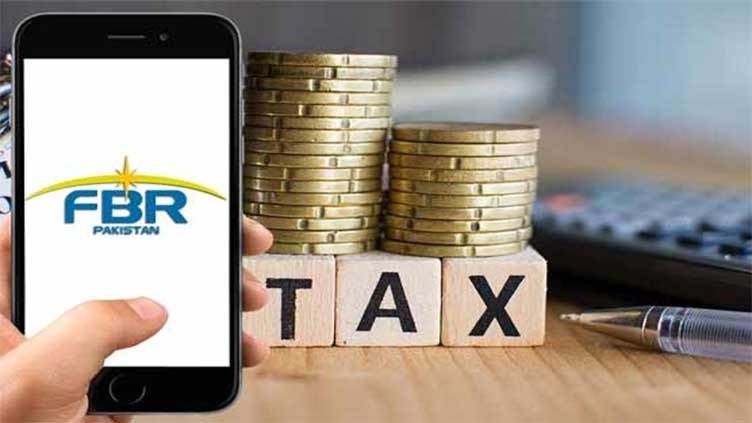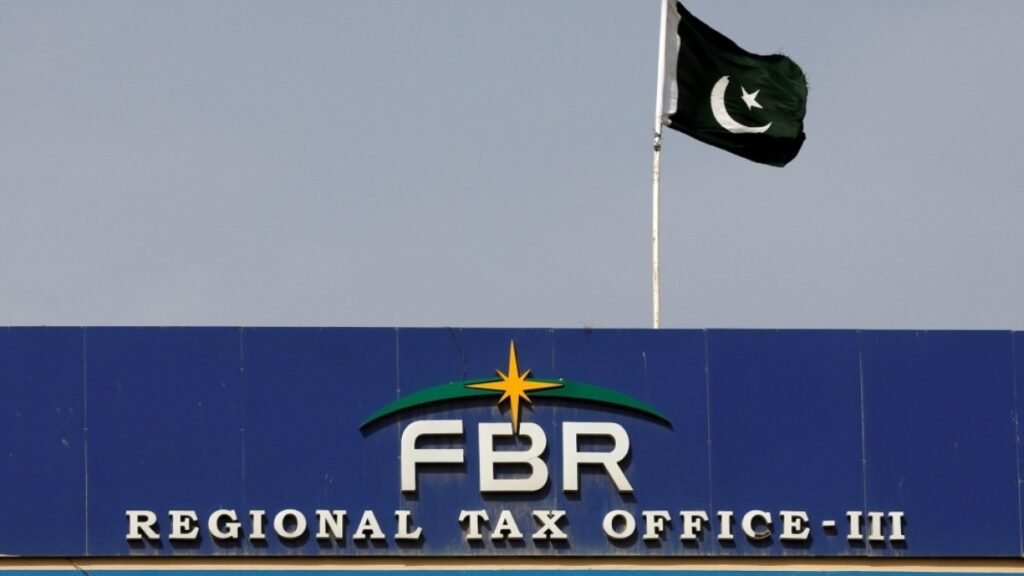The news that FBR Imposes Massive Rs111 Billion Fine on Companies has stunned Pakistan’s financial and import sectors. The FBR uncovered a sophisticated money laundering scheme by several solar import firms, exposing over invoicing of imported solar panels. These fake companies inflated import values by Rs120 billion, and authorities discovered Rs140 billion routed through shell entities using forged paperwork. In response, the tax authority slapped a record Rs111 billion fine on the fraudulent firms.
The crackdown also led to the seizure of 327 seized containers, with plans for an auction to recover Rs1.5 billion. The move is part of a broader attempt to curb trade‑based laundering and restore integrity in Pakistan’s import system. For more latest news checkout, Pakistan coverage.
Crackdown Action
FBR Imposes Massive Rs111 Billion Fine on Companies begins with a strong crackdown on 13 fake solar panel companies. These fake companies were penalised by Customs Adjudication Authority under FBR Imposes Massive Rs111 Billion Fine on Companies heading for using over invoicing and money laundering tactics. According to sources, FBR detected inflated import values and routed funds through shell firms. This penalty shows the tax agency’s resolve to clean up trade‑based laundering in the solar sector.
Customs PCA audit by FBR uncovered forged invoices and fictitious import documentation. The Customs PCA audit by FBR triggered this penalty. Under post‑clearance audit, officials validated that solar import firms were fabricating invoices to launder money. The investigation led to fines totalling Rs111 billion fine, revealing dark facets of trade operations in Pakistan.
Fraud Details
This section covers how over invoicing inflated declared import values by Rs120 billion over invoicing, a massive distortion of trade data. Firms declared imports worth far more than actual shipments to transfer illicit funds Abroad. Investigators confirmed the manipulation allowed money to move unnoticed under the guise of genuine solar panel trade.
Experts estimate Rs140 billion routed through shell firms in complex transactions. Funds shifted via bank deposits and unregistered cash inflows totalling Rs140 billion, of which Rs45 billion in cash. These shell entities had no real operations. All operations existed only on paper, showing how money laundering schemes exploit regulatory gaps in import mechanisms.
Seizure & Recovery
Authorities have already seized 327 seized containers of solar panels at Karachi ports, and moreover these containers were linked to fake import activity and remain held under customs control. Furthermore, they included shipments declared by solar import firms that never materialised physically beyond paperwork. Consequently, the seizure highlights FBR’s determination to halt illicit goods in transit. Additionally, the action sends a clear signal that trade underpinned by fraudulent documentation will not be tolerated, reinforcing FBR’s broader crackdown on trade‑based laundering schemes.
Officials expect to generate auction revenue recovery of Rs1.5 billion from public sale of these seized goods. The auction to recover Rs1.5 billion will help recoup part of losses. This recovery plan shows how enforcement blends penalties with revenue realisation, underlining FBR’s strategy to restore trust in import system and deter future trade‑based money laundering. To get all the latest news, click here.
Targets Profile

Investigators first identified 13 fake solar import firms as central to the scheme; moreover, these entities had no physical offices or real business activity. Instead, they existed solely to execute invoices, launder funds, and evade tax. Consequently, the staggering fine reflects reliance on imaginary businesses that manipulated customs records under false pretences. Furthermore, the network showed links to Peshawar, Quetta, and Islamabad, since fake firms had addresses in those cities.
Investigators traced connections among shell entities registered across major regions of Pakistan. Accordingly, this geographic spread underlines how fake companies can operate across jurisdictions, hiding behind local offices to mask illicit schemes (Geo News).
Economic Threat
This scandal reveals how trade‑based money laundering can weaken Pakistan’s economy. It shows how illicit funds travel under legitimate trade, exploiting customs tax gaps and invoicing loopholes. This casts doubt on trust in the solar import sector and highlights risks of unchecked trade flows during a surge in renewable energy demand.
The scheme caused major loss to national revenue via evaded taxes and hidden inflows. Authorities estimated that inflated customs valuations and fake local sales depressed real tax receipts while funds were siphoned abroad. Handling such mega‑fraud is critical for restoring fiscal integrity and safeguarding exchequer revenues in Pakistan.
Policy Response
A Senate committee now investigates the over‑invoicing scandal. The PM Office has set up an inter‑agency task force including SECP, Customs, FMU and tax authorities to probe how such widespread fraud occurred. This Senate committee investigates over invoicing to ensure accountability across enforcement bodies.
Inter agency reforms underway include improving coordination, strengthening post‑clearance audit frameworks, and enhancing monitoring of high‑risk sectors like solar imports. The policy reforms aim to tighten oversight over solar import firms and prevent similar fraud in future trade‑based schemes.
Public Message
FBR warns against trade scams clearly, urging companies to avoid falsifying import values or using shell firms. It emphasises that exemption benefits or tax relief must not be misused. The tax agency’s message is firm: compliance is mandatory. Public statements stress zero tolerance for money laundering masquerading as trade.
The case confirms intent to clean import system by FBR. The move sends a warning to all solar import firms that engaging in fraud or over‑invoicing will attract severe consequences. FBR aims to restore transparency and integrity in Pakistan’s import trade, particularly in sectors vulnerable to abuse under current incentives. Explore top world stories and global updates, click here.
Case Study Table
| Element | Detail |
| Penalty Imposed | Rs111 billion fine by FBR on 13 fake solar panel companies |
| Over Invoicing Value | Rs120 billion over invoicing detected via false import documentation |
| Routed Funds | Rs140 billion routed through shell firms, Rs45 billion in cash |
| Containers Seized | 327 seized containers at Karachi ports |
| Recovery Plan | Auction expected to recover Rs1.5 billion from seized goods |
| Corporate Targets | Firms linked to Peshawar, Quetta, Islamabad with no physical presence |
| Policy Measures | Senate committee, inter‑agency reforms, PCA enforcement strengthening |
Frequently Asked Questions (FAQs)
How can I check my CNIC filer status?
You can check your filer status by typing ATL CNIC‑number (13 digits without dashes) and sending it to 9966, or by visiting FBR’s IRIS/Online Verification Portal and entering your CNIC to see if you’re an active taxpayer.
What is the meaning of FBR?
FBR stands for the Federal Board of Revenue, Pakistan’s central authority responsible for collecting federal taxes, enforcing tax laws, and investigating money‑laundering and tax evasion.
Is FBR registration number the same as an NTN number?
Yes, the FBR registration number typically refers to your National Tax Number (NTN), which is issued by FBR to individuals and businesses for tax identification and filing purposes.
How do I apply for a sepoy position in FBR?
To apply for the sepoy job (BPS‑5) in FBR, visit the official FBR website or recruitment portal, complete the application form with your CNIC and documents, and submit before the deadline via the NJP/FBR portal.
Can I check my CNIC details online?
Yes, you can verify your CNIC information online via the NADRA Pak‑Identity portal or NADRA’s CNIC verification system by entering your 13‑digit number and captcha to view your registered details.








